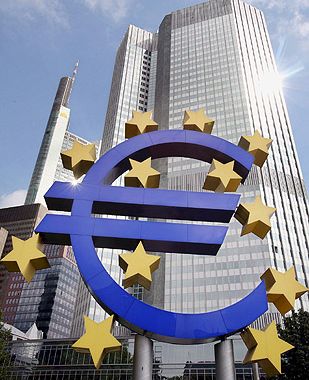Central banks move on credit crunch
American and European central banks launch biggest economic intervention since 9/11.

Asia unimpressed
Japan’s Nikkei slid about 1.2 per cent, reflecting investors’ doubts about the usefulness of the pact.
Hong Kong’s Hang Seng opened flat as investors treaded cautiously.
Yutaka Mura, a senior technical analyst at Shinko Securities, said it was unlikely that stocks would rise much because the plan “does not seem to fundamentally solve the credit crunch”.
The central banks’ initiative comes after cuts in interest rates by the US Federal Reserve, the Bank of Canada and the Bank of England failed to reduce rates banks were charging each other for borrowing money.
The Bank of Japan and Sweden‘s Riksbank also announced their support for the plan.
The credit crisis erupted earlier this year when record housing foreclosures in the US sub-prime mortgage market left banks weary of lending.
Recession fears
Economists are concerned that a continued reluctance to lend money could trigger a recession in the US, with a knock-on effect on the rest of the world.
David Wyss of Standard and Poor’s told Al Jazeera that banks were afraid of lending, both to other banks and to consumers.
“As a result, they are demanding higher premiums, higher differences above the cost of lending to the government or to the Fed in order to lend that money out,” he said.
But Tom Metzold of Eaton Vance Management believed the move would ease the credit crunch “because there will be more money available for banks and other lending institutions”.
Bruce Kasman, chief economist for JPMorgan Chase, said: “These guys are coming and telling you they’re going to be there. They’re going to come in and make sure the liquidity issues in the marketplace don’t get to be too severe.”
Al Jazeera’s John Terrett said Wall Street at first responded positively to the international banking pact, with the Dow Jones average soaring initially, but those gains were reduced by early Wednesday afternoon as investors began to realise there was no proof the banking band-aid would work.